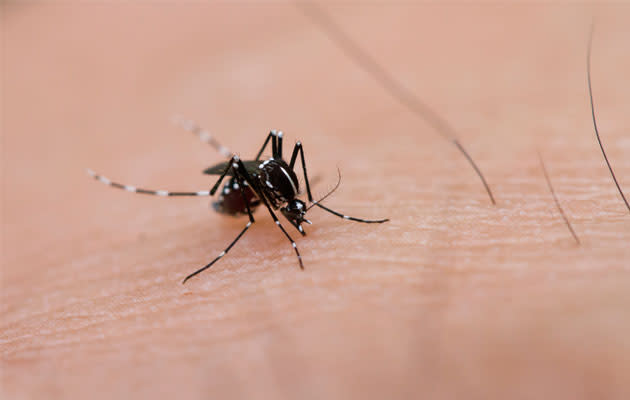 Fit to Post Health
Fit to Post HealthDengue: On the rise and more dangerous than ever

The dengue fever epidemic in Singapore is on the rise and does not appear to be slowing down. With three strains of the virus being equally active – a rare occurrence – weekly infection cases are at a six-year high.
As dengue cases tend to peak from May to July, experts fear that this year’s outbreak could even surpass Singapore’s worst dengue outbreak in 2005 (14,000 people fell ill and 25 died). Although there have been no deaths so far, more than 3,100 have been infected. A quarter of cases have been admitted into hospitals.
Figures from the Ministry of Health show that the long dormant Den-1 strain of the virus has resurfaced and is currently responsible for more than 50 per cent of infections.
“Those that contract dengue develop an immunity to the particular strain that infected them. However as the Den-1 strain has stayed low key for several years in Singapore, most do not have immunity to it,” explains Dr Jenny Low, Senior Consultant at the Department of Infectious Disease, Singapore General Hospital (SGH).
She adds, “Furthermore, with four different strains around, one can easily be infected with a different strain.”
What are the symptoms of dengue fever?
Dengue fever is an illness caused by the dengue virus, transmittable only through the bite of an infected Aedes mosquito. Unfortunately, the Aedes mosquito is one of the most common types of mosquito found in Singapore.
Dengue symptoms include a fever (which can last up to 7 days), accompanied by intense headache, body aches, joint pains, loss of appetite, nausea, vomiting and skin rashes. Complete recovery can take up to a month.
Related video: Taking a trip or planning for one? Watch this video first!
Dengue haemorrhagic fever, a more severe form of dengue, has similar symptoms. However, it presents with more serious bleeding problems (e.g. gum bleeding, nose bleeding and bleeding into the skin and internal organs). If left untreated, dengue haemorrhagic fever can be fatal.
When should you get checked for dengue fever?
If you suspect that you or a loved one has contracted dengue, visit your GP, rest and drink plenty of fluids. For the safety of others, you should also stay away from places where you are likely to get bitten by mosquitoes (which would then propagate your virus).
Go to the hospital only if you suffer from severe stomach pain and persistent vomiting as these are symptoms of more serious dengue haemorrhagic fever.
There is no dengue fever vaccine yet in Singapore. However, researchers from the Singapore General Hospital (SGH) and Duke-NUS Graduate Medical School (Duke-NUS) have begun clinical trials in July last year. Results will be published later this year.
Related article: Learn more about the potential new dengue drug developed in Singapore
How can you protect yourself from dengue fever?
With no vaccine nor treatment currently available for dengue fever, the best protection against dengue is to help prevent the breeding of the Aedes mosquito. To do so, you need to make it a habit to get rid of stagnant water in and around your home.
Helping to raise public awareness, the National Environment Agency (NEA) has developed a quick “10-minute 5-step Mozzie Wipe-out” routine to keep homes free of any Aedes mosquito. The steps are:
Change water in vases/bowls on alternate days
Turn over all water storage containers
Cover bamboo pole holders when not in use
Clear blockages and put BTI insecticide in roof gutters monthly
Remove water from flower pot plates on alternate days
In addition, as the Aedes mosquito only feed during the day, you can apply insect repellent over exposed parts of the body. For added protection, you can also spray insecticide in dark corners of your home such as under the bed and sofa and behind curtains.
The NEA and other government agencies have also stepped up dengue prevention efforts nationwide. They are targeting areas where dengue has been circulating, installing Gravitraps to monitor and trap the adult mosquito population, and visiting homes to check for Aedes mosquito breeding spots.
When it comes to dengue, for now it appears that prevention is the only cure.
Related article: What if you’re bitten by a snake? Here’s what to do
This article was written by Alvin Chumari for Health Xchange, with expert input from Department of Infectious Disease, Singapore General Hospital (SGH).
Find more health-related tips and articles on HealthXchange.com.sg, Singapore's trusted health and lifestyle portal.
Health Xchange's articles are meant for informational purposes only and cannot replace professional surgical, medical or health advice, examination, diagnosis, or treatment.


